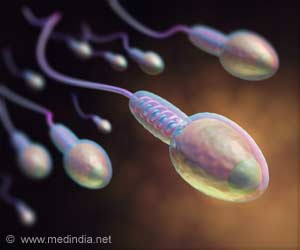Men are at higher risk of cancer due to some fundamental biological mechanism that results in the loss of function in specific genes of the sex-determining Y chromosome, which is present only in men.

‘Certain environmental exposures, for example to tobacco or other harmful substances, could affect chromosome function and lead to epigenetic modifications.’
Read More..




Using data from 9,000 individuals, the researchers studied Y-chromosome gene function in patients with various types of cancer. The findings showed that cancer risk increases with loss of function of six key Y-chromosome genes in various types of cells. Read More..
"Recent studies have shown that complete loss of the Y chromosome, which is essential to foetal sex differentiation, occurs, with aging, in the cells of some men," commented Juan Ramón González, coordinator of the study and head of the Bioinformatic Group in Genetic Epidemiology at ISGlobal.
"Although the loss of the Y chromosome has previously been associated with higher incidence of cancer, the causes of this association are poorly understood."
These six Y-chromosome genes are involved in cell-cycle regulation, the failure of which can lead to tumour development. "Interestingly, these genes are matched by a similar copy on the X chromosome," explained Alejandro Cáceres, lead author of the study. "If, as demonstrated, the X-chromosome copy also mutates in the same cells, the protection against cancer that these genes might otherwise provide is lost completely."
A High-Priority Line of Research Understanding the biological differences between men and women in cancer is crucial for the development of personalised lines of treatment and prevention. "Men are not only at higher risk of cancer than women, they also face a worse prognosis," commented González. "In fact, these differences partially account for the lower life expectancy of men."
Advertisement
According to the authors of the study, suppression of the Y chromosome can occur as a result of loss of function in the chromosome, which would explain previous findings, or as a result of other mechanisms mediated by the chemical (epigenetic) inactivation of the same regions.
Source-Eurekalert















